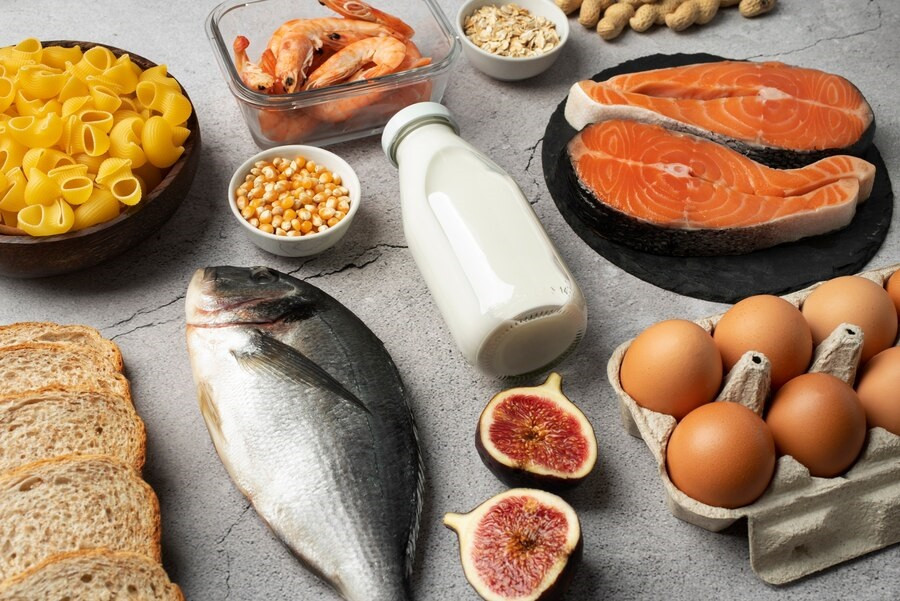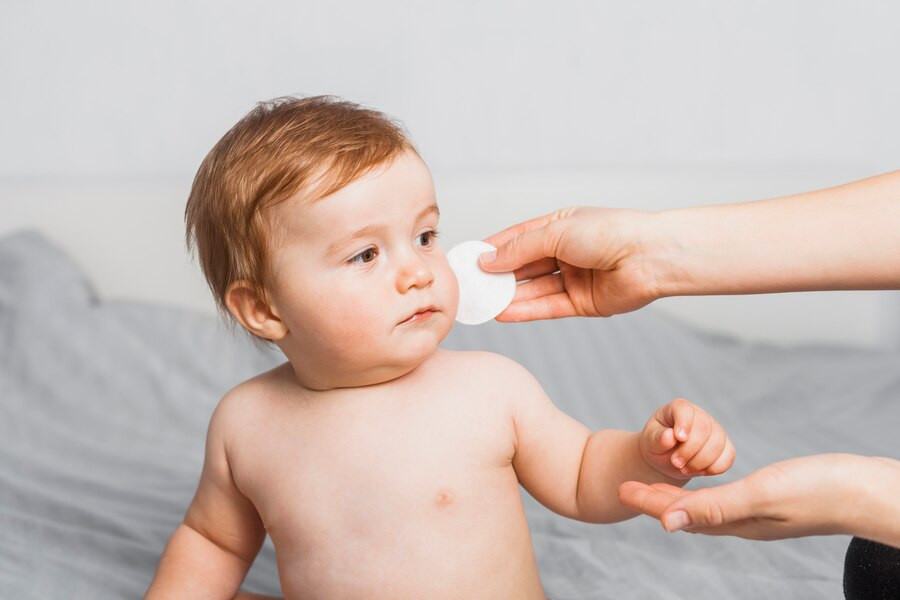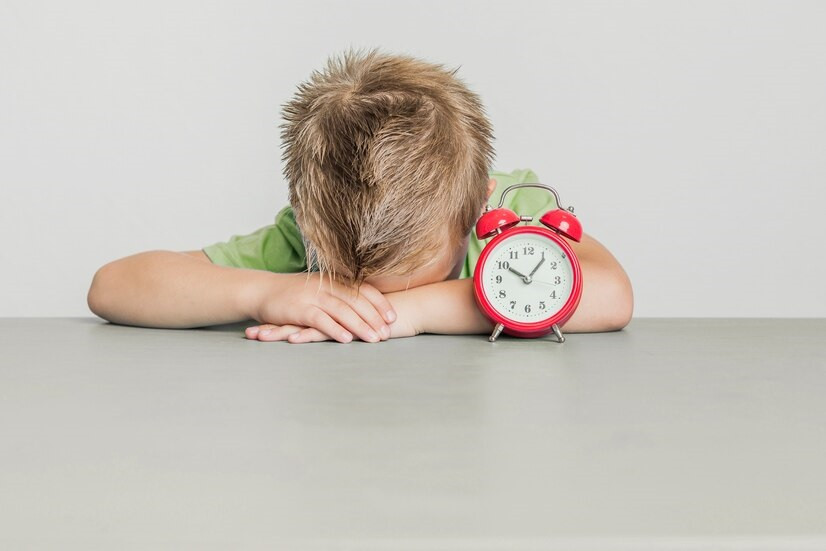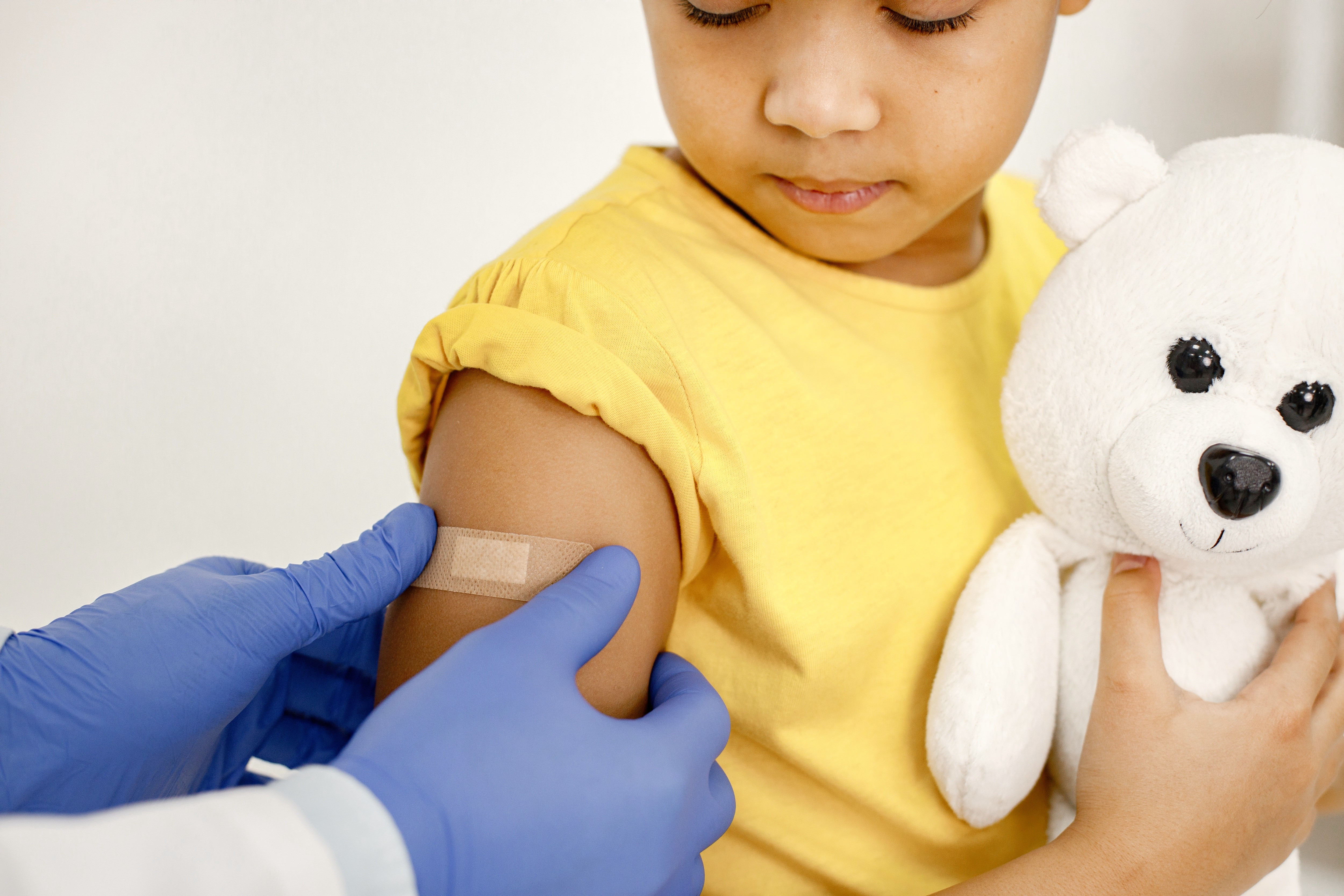Protein adalah salah satu komponen penting dalam tubuh setiap manusia yang peran dalam menjaga kesehatan dan fungsi tubuh. Konsumsi protein yang cukup melalui makanan, membantu menjaga kesehatan dan memaksimalkan perkembangan optimal tubuh terutama selama masa pertumbuhan.
Kebutuhan protein anak-anak berbeda-beda, tergantung pada usia, jenis kelamin, aktivitas fisik dan kondisi kesehatan. Sangat penting bagi anak-anak untuk mendapatkan asupan protein yang cukup dari makanan seimbang.
Berapa Kebutuhan Protein Anak-Anak?
Kebutuhan protein anak bervariasi, namun para ahli merekomendasikannya berdasarkan usia mereka, di antaranya:
- Anak usia 1-3 tahun membutuhkan 13 gram protein
- Anak usia 4-8 tahun membutuhkan 19 gram protein
- Anak usia 9-13 tahun membutuhkan 34 gram protein
- Remaja laki-laki usia 14-18 tahun membutuhkan 52 gram protein
- Remaja perempuan usia 14-18 tahun membutuhkan 46 gram protein
Baca Juga: Panduan Bekal Sehat untuk Anak
Manfaat Protein bagi Kesehatan Anak-Anak dan Remaja
Mengonsumsi cukup protein dapat memberikan aneka manfaat kesehatan bagi anak-anak dan remaja, di antaranya:
- Membantu pertumbuhan dan perkembangan sel-sel, jaringan dan organ semasa pertumbuhan
- Memelihara dan memperbaiki otot di antara aktivitas fisik anak
- Membantu dalam pembentukan antibodi untuk membantu melawan infeksi dan penyakit
- Membantu pertumbuhan dan pemeliharaan rambut, kulit, dan kuku
- Membantu mendukung pertumbuhan otak dan perkembangan kognitif
- Sebagai sumber energi cadangan ketika asupan kalori dari karbohidrat dan lemak kurang
- Membantu mengendalikan nafsu makan dan menjaga berat badan yang sehat sehingga anak-anak bisa memilih makanan yang lebih sehat ketimbang makanan ringan yang kurang sehat
Baca Juga: Manfaat Makan Ikan bagi Anak-Anak
Perlukah Memberikan Suplemen Protein pada Anak?
Walaupun protein sangat penting bagi anak-anak, anak-anak tidak membutuhkan tambahan suplemen protein dari minuman protein seperti whey protein. Suplemen protein tidak boleh diberikan sembarangan pada anak-anak tanpa rekomendasi dari ahli gizi atau dokter.
Penting untuk diingat bahwa kelebihan asupan protein juga bisa membahayakan kesehatan, di antaranya:
Penambahan berat badan
Suplemen protein mungkin mengandung tambahan gula atau kalori yang dapat menyebabkan penambahan berat badan bila dikonsumsi dalam jumlah berlebihan. Kelebihan kalori dapat berdampak pada penambahan berat badan dan obesitas.
Kerusakan ginjal dan hati
Konsumsi protein yang berlebihan dapat menyebabkan ginjal bekerja terlalu keras. Akibatnya, anak lebih berisiko terhadap batu ginjal, kerusakan ginjal jangka panjang dan dehidrasi.
Kekurangan nutrisi
Memberikan suplemen protein pada anak-anak dapat membuat mereka merasa kenyang sebelum mengonsumsi menu utama. Padahal, menu utama yang seharusnya dikonsumsi juga mengandung nutrisi lain yang tak kalah penting dibandingkan protein.
Sebaiknya anak-anak mendapatkan asupan protein yang cukup dari makanan sehari-hari saja. Anak-anak tidak perlu suplemen protein tambahan, kecuali direkomendasikan oleh dokter.
Konsumsi makanan yang seimbang dan porsi yang tepat adalah kunci dalam menjaga berat badan sehat dan pertumbuhan optimal anak-anak. Apabila Anda membutuhkan bantuan terkait dengan asupan gizi anak-anak, sebaiknya konsultasikan dengan dokter atau ahli gizi. Anda juga bisa memanfaatkan layanan konsultasi kesehatan dengan mengunduh aplikasi Ai Care melalui App Store atau Play Store.
Mau tahu informasi seputar kehamilan, menyusui, kesehatan wanita dan anak-anak? Cek di sini, ya!
- dr. Monica Salim
Vincent Iannelli, MD (2022). Protein-Rich Foods for Kids. Available from: https://www.verywellfamily.com/protein-rich-foods-2633936
CHOC (2022). How much protein does my child need?. Available from: https://health.choc.org/how-much-protein-does-my-child-need/
Cleveland Clinic (2021). Why Extra Protein for Your Child Is Unnecessary—and Possibly Dangerous. Available from: https://health.clevelandclinic.org/why-extra-protein-for-your-child-is-unnecessary-and-possibly-dangerous/
Moira Lawler (2022). What Is Protein? A Complete Scientific Guide. Available from: https://www.everydayhealth.com/diet-nutrition/protein-how-much-you-need-benefits-sources-more/
Mrunal (2022). Protein for Kids: Benefits, Requirements& Foods. Available from: https://parenting.firstcry.com/articles/protein-for-kids/
WebMD (2023). Is It Safe to Give a Child Protein Drinks?. Available from: https://www.webmd.com/children/is-it-safe-to-give-a-child-protein-drinks











